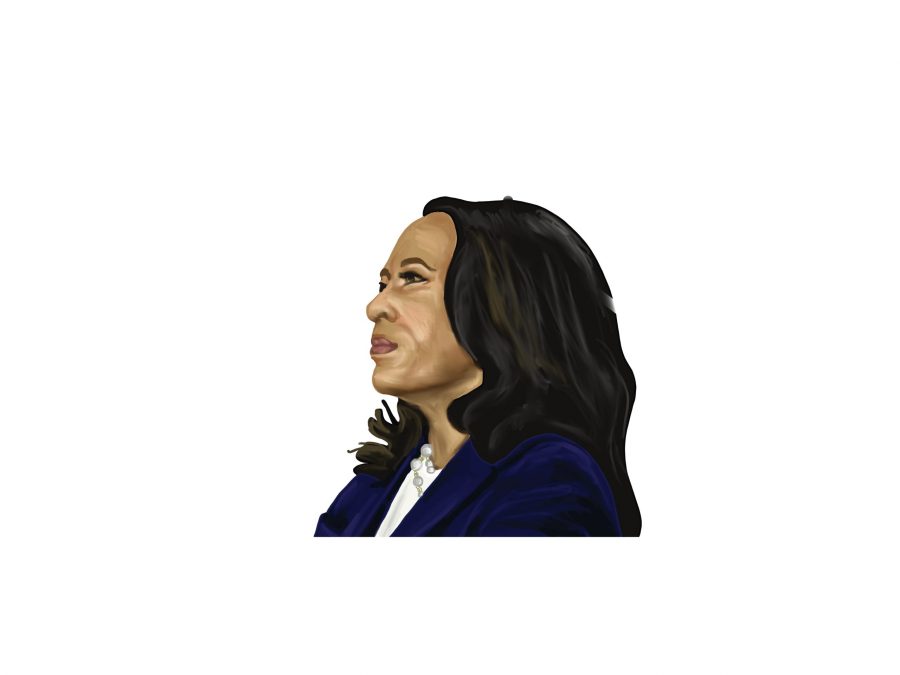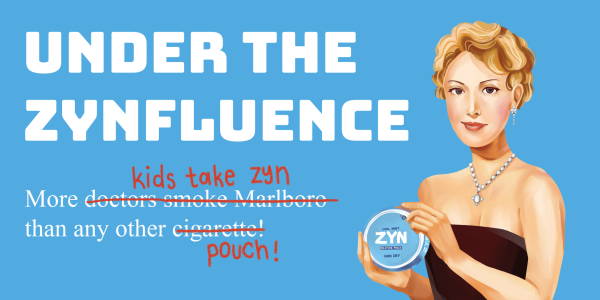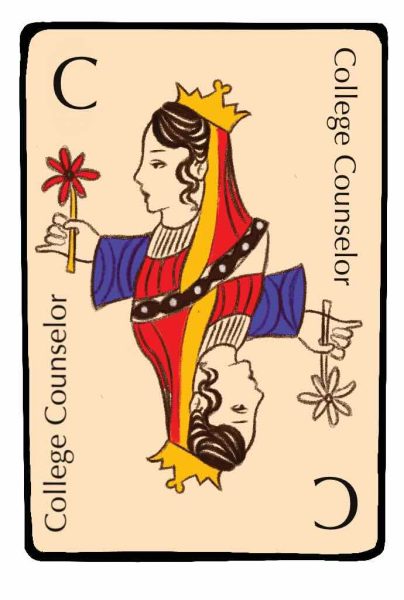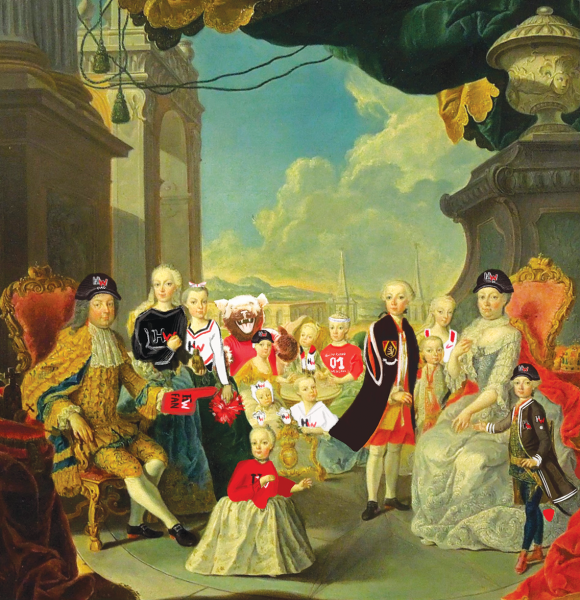Making Herstory
Illustration by Alexa Druyanoff and Siobhan Harms
Vice President Kamala Harris is the first woman, African-American and Asian-American to hold this high elected office.
December 9, 2020
After days of eagerly awaiting the results of the election, Matthew Lee ’21 jumped off his couch when he heard CNN’s Wolf Blitzer announce that Kamala Harris had been elected as America’s next vice president. A former volunteer for her presidential campaign, Lee said he was ecstatic to see his role model earn such an important position.
“She couldn’t have been more deserving of this, and I know she will work hard to pave the way for more women and minorities to get into positions of power,” Lee said. “Kamala is tough, fearless and principled, and to see her exhibit those qualities on a national stage will encourage more young women to develop those qualities.”
For many women and people of color, Kamala Harris’s rise to power is a milestone in the movement for gender and racial equality, as she is both the first female and first person of color to serve as vice president.
Despite comprising over half of the American population, women only make up about a quarter of the elected officials in Congress and less than half of mayors, governors and state officials across the country, according to the Center for American Women and Politics.
Gabby Odoom ’21 said Harris’s recent election is especially monumental as a step toward breaking the systemic barriers for women of color in leadership.
“I think a lot of women of color in particular have been waiting to see this kind of representation in government leadership for a really, really long time,” Odoom said. “Kamala gives me hope that women of color can surmount societal barriers like sexism and racism.”
As the first woman to serve as the White House Press Secretary, Dee Dee Myers (Stephen Purdum ’22) said she has witnessed women make immense strides in the political world throughout her career.
“A lot has changed since my first political convention in 1984, when Geraldine Ferraro became the first woman to be nominated to a national ticket,” Myers said. “We have a woman Speaker of the House, more women in Congress than at any time in our history, four women on the U.S. Supreme Court, more women serving as governors and in state legislatures. But as we celebrate the 100th anniversary of women’s suffrage, there are still too few women at the highest levels of politics and government.”
From Susan B. Anthony, the face of the women’s suffrage movement, to Hillary Clinton, the first female presidential candidate to win the popular vote, women have been fighting for their rights since America’s inception. On the 100th anniversary of the 19th Amendment, it is evident the country has made progress in dismantling the American patriarchy. History and Gender Studies teacher Lilas Lane said she believes that women have more freedom in this age, but they are still not treated equally compared to men. Moreover, in politics, women face constant societal obstacles that prevent them from reaching their full potential, she said.
“In modern American society, women are not viewed the same as men, especially in spheres that are traditionally male-dominated, politics being the most obvious,” Lane said. “The qualities that are admired or seen as neutral in male politicians are reviled in women politicians. This is really visible when we consider how women politicians are treated in the media: judged on their looks [and] criticized for behavior that would be unremarkable in men.”
According to a report published by the Pew Research Center, the majority of American believe that women face more obstacles than men when running for high political offices. Many of them say some of the most prominent reasons for this disadvantage are that women face gender discrimination, are less likely to garner the same amount of support as men from party leaders and often must prove themselves to a higher extent than men. 42% of Americans believe that another cause of the political gender gap is that many young women are not encouraged from a young age to aspire for high positions in political leadership. This breach in confidence in young girls can affect them later on in life as they are trained to settle for less, whether it be in politics or in their home life, according to Forbes contributor Margie Waller.
EMPOWER Club leader Olivia Smith ’21 said she and other members of the student-led organization aim to help teenage girls learn to overcome degrading, societally-inflicted biases before they reach professional life.
“Women and girls have been taught to belittle themselves in the same manner men belittle them,” Smith said. “Inspiring young girls to fight that narrative is vital if we hope to see more equal representation in leadership positions in every field in the future. By recognizing the power of strong women, we hope to inspire the women of the school community to be confident and assertive leaders.”
Smith also said girls must learn their worth and value, which is a development often hindered by the idea imposed on young women that their power is derived from their physical appearance. This idea dates back to the 18th century feminist Enlightenment thinker Mary Wollstonecraft, yet it still maintains its relevance in society.
“I think they would be concerned about the pressure society puts on girls and women to look a certain way—the ‘beauty myth’ as [feminist author and journalist] Naomi Wolf described it—that imposes unrealistic and unhealthy beauty standards on women,” Lane said. “This emphasis on how women look undermines women’s power, sense of confidence and self-worth.”
In 1920, America passed the 19th amendment, giving women the right to vote. A century later, in 2020, American elected its first female Vice President. While the constant battle for equity in the political sphere continues, Myers said young women especially must fight for representation in government and politics, as they bring essential perspectives which create impactful change.
“Young women, and all women, need to know that their voice matters,” Myers said. “Diversity isn’t important because it makes us feel better. It’s important because it makes us do better. It changes the conversation, opens us to new ideas and leads to better outcomes. Gender and generation are hugely important parts of that process. Young women bring their own experiences, their own perspective, their own vision and values to everything they do, including politics. And that can change the world.”














































